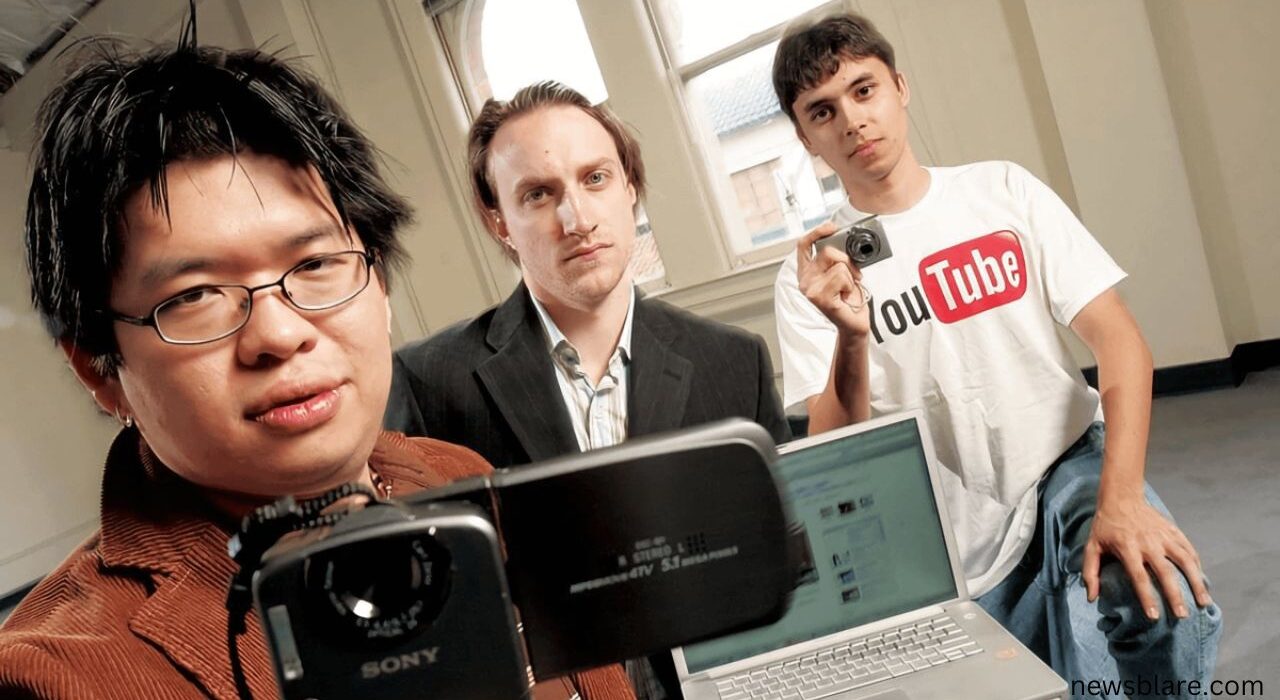Three kids made a spectacular decision when they sold YouTube for $1.65 billion in October 2006. Back then, it was nothing more than a video-sharing website which they sold for a whopping sum. Today, that site, YouTube, is identified as the most valuable website with a tremendous worth of over $455 billion. As we enter into their journey, it is really interesting to know why these kids sold a video-sharing website for $1.65 billion and disappeared overnight.
Chad Hurley, Steve Chen, and Jawed Karim were not the average kids; they were the brainchildren behind YouTube. Their idea began over dinner in 2004 as they found themselves wanting to share videos easily. They first envisioned a video dating site with the tagline, “Tune in, Hook up.” Fortunately, this concept failed, but it led them to come up with something revolutionary: YouTube.
The first video on the website was a simple 18-second clip of Jawed at the zoo, which he captioned “The elephants have really, really long trunks.” This little spark would go on to ignite a fire that altered entertainment and the way people would watch things forever. YouTube boomed, attracting an incredible 2.6 billion active users one-third of the entire internet. It has grown to tremendous heights, from the time its founders sold a video-sharing website for $1.65 billion in 2006 to the $28.8 billion in revenue the platform reported in 2021.
The conquest of YouTube by Google through its purchases has made it an anchor in the league of tech royalty. That aside, its three founders have long since walked away from it. By the end of 2011, all three had done so, and many wonder why. Why? This is because real inventors don’t rest on their laurels; they do look for their next big thing. Selling a video-sharing website to the tune of $1.65 billion was but only the starting point of their journey.
Kids sold YouTube for $1.65 billion: What they did later?
It didn’t disappear from the public eye post-YouTube. Instead, they expanded, and each of these founders has embarked on really significant new ventures. Hurley was invested in the Golden State Warriors, which made them NBA champions. Chen invested in quite a few notable startups, like Slack and Airbnb. Karim also invested in popular companies, such as Reddit and Palantir.
The decision to step aside when YouTube was riding the high tide actually shows a broader principle: moving on when something created outgrows its creators. YouTube transformed the entertainment map and created careers for thousands of its creators, including Justin Bieber. it initiated a creator economy that has grown to $15 billion.
Its impact did not stop there, because it touched politics and social movements globally. For instance, 62% of adult Americans have begun to watch news on YouTube which has positioned the media outlet as an active participant in moulding public opinion and social discourse.
Learn how to innovate, and cause disruption, but know when to step back – The Chadd, Steve, and Jawed Lesson. The YouTube revolution is profound yet deep in that it raises the question of the future: what will be the next YouTube? Anything is possible, and the occasion calls for new ideas, and who knows? Tomorrow may just be a step ahead.
Check out this informative thread
Also, see: Top 50 Most Subscribed YouTube Channels: T-Series, Cocomelon, Sony
